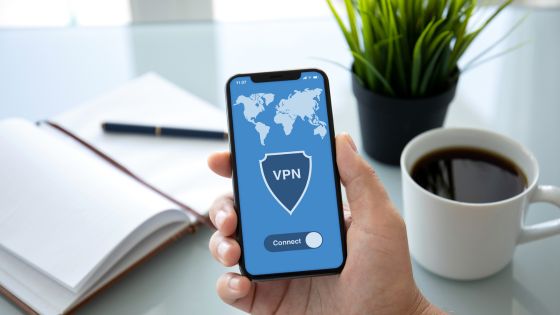As more companies adopt remote work models, many employees turn to virtual private networks (VPNs) to access work-related resources and protect their online privacy. In this article, we will explore whether an employer can track an employee’s location through a VPN and what measures can be taken to ensure privacy.
What Is The Meaning Of VPN?
A VPN, short for Virtual Private Network, is a technology that creates a secure and encrypted connection over a public network, such as the Internet.
It allows users to access private networks remotely and securely by extending a private network across a public network infrastructure.
When connected to a VPN, your internet traffic is encrypted and routed through a VPN server, making it difficult for third parties to intercept or monitor your online activities.
The primary purpose of a VPN is to enhance online privacy and security, protecting your data from unauthorized access and potential threats.
It creates a secure tunnel between your device and the VPN server, ensuring that your browsing history, online communications, and personal information remain private and protected.
A VPN can also help bypass geo-restrictions, allowing users to access region-restricted content and websites.
However, it’s important to note that while a VPN provides privacy and security, it does not guarantee anonymity.
Your employer, for example, may still have visibility into your VPN usage within the workplace network, but they cannot directly track your physical location through the VPN.
Are Any Specific Circumstances Under Which An Employer Can Legally Track An Employee’s Location Through A VPN?
Under normal circumstances, an employer cannot legally track an employee’s location through a VPN without proper consent or a valid reason.
Employee privacy rights vary depending on the jurisdiction and employment laws in place. However, there may be specific circumstances where an employer can legally track an employee’s location through a VPN.
For instance, if the employee has explicitly agreed to allow location tracking as part of their employment agreement or if the tracking is necessary for specific job-related purposes, such as ensuring employee safety or monitoring work activities in certain industries.
Even in such cases, employers are typically required to inform employees about the tracking and obtain their consent.
It is important for employers to adhere to applicable laws and regulations regarding employee privacy and ensure that any tracking measures are reasonable, transparent, and aligned with legitimate business interests.
What Steps Can Employees Take To Ensure Their Location Remains Private When Using A VPN Provided By Their Employer?
To ensure their location remains private when using a VPN provided by their employer, employees can take several steps:
1. Review the VPN Policy: Familiarize yourself with your employer’s VPN policy and any relevant privacy guidelines. Understand what information may be collected or monitored by your employer and how it is used.
2. Enable VPN Kill Switch: Most reputable VPN services offer a Kill Switch feature that automatically disconnects your internet connection if the VPN connection drops. This prevents any potential exposure of your real IP address and location.
3. Avoid Personal Activities: It’s advisable to refrain from engaging in personal activities, such as accessing personal social media accounts or conducting personal transactions, while connected to your employer’s VPN. This helps maintain a clear separation between work-related activities and personal usage.
4. Use Personal Devices: Whenever possible, consider using your own personal devices rather than company-provided devices. By using your own devices, you have greater control over the applications and settings, minimizing the risk of potential tracking.
5. Opt for Independent VPNs: If you have concerns about privacy or want to maintain complete control over your VPN usage, you may choose to use an independent VPN service instead of your employer’s provided VPN. However, it’s crucial to review your employment agreement and company policies to ensure that such usage does not violate any terms.
6. Disable Location Services: Disable location services on your devices to prevent any accidental exposure to your location. This includes both mobile devices and computers. By disabling location services, you minimize the chances of your employer tracking your whereabouts.
7. Regularly Update VPN Software: Keep your VPN software up to date to ensure you have the latest security patches and features. Regular updates help maintain the integrity and privacy of your VPN connection.
Best 3 VPN:
When it comes to selecting a VPN that prioritizes privacy, security, and protection against employer tracking, several reputable options are available. Here are three top VPN services to consider:
1. Surfshark VPN: Surfshark VPN is an excellent choice for maintaining your online privacy. It offers strong encryption and advanced security features to protect your data from potential surveillance. With Surfshark’s strict no-logs policy, your browsing history and online activities remain completely private.
Additionally, Surfshark provides features like MultiHop, which routes your internet traffic through multiple VPN servers for enhanced anonymity. It also offers a Camouflage Mode, which masks your VPN usage, making it difficult for your employer or any other third party to track your online activities. With Surfshark 2-year deal, you can enjoy long-term protection at an affordable price.
2. ExpressVPN: ExpressVPN is widely recognized as a leading VPN provider, known for its robust security features and fast connection speeds. It utilizes strong encryption protocols and offers a strict no-logs policy, ensuring that your online activities remain private and protected.
ExpressVPN operates a large network of servers across the globe, allowing you to connect to various locations and bypass geo-restrictions with ease. By encrypting your internet traffic and masking your IP address, ExpressVPN provides a high level of privacy and security, making it difficult for your employer to track your location or monitor your online activities.
3. NordVPN: NordVPN is another popular VPN service that excels in providing secure and private internet access. With its military-grade encryption and a vast network of servers, NordVPN ensures your data remains secure and your browsing activities are anonymous.
It offers features like Double VPN, which routes your traffic through two servers, and Onion Over VPN, which combines the benefits of a VPN with the anonymity of the Tor network. NordVPN also has a strict no-logs policy, ensuring that your online activities are not tracked or recorded.
By using NordVPN, you can protect your privacy and prevent your employer from tracking your location through the VPN.
Are There Any Potential Risks Or Consequences For Employees Who Attempt To Bypass Location Tracking Through A VPN?
Attempting to bypass location tracking through a VPN provided by an employer can come with potential risks and consequences for employees. It is important to consider the legal and contractual obligations that exist within the employment relationship.
Bypassing location tracking measures may be considered a violation of company policies, acceptable use agreements, or employment contracts.
Consequences for such actions can range from disciplinary measures, including warnings or reprimands, to more severe outcomes such as suspension or termination of employment.
Additionally, engaging in activities to intentionally circumvent employer tracking measures may erode trust between the employee and the employer, potentially impacting the working relationship and future opportunities within the organization.
It is crucial for employees to understand the implications of their actions and to carefully weigh the potential risks before attempting to bypass location tracking through a VPN.
Conclusion
In conclusion, the ability of an employer to track an employee’s location through a VPN depends on several factors, including specific circumstances, applicable laws, and the terms of employment. While a VPN can provide privacy and encryption, it is not entirely foolproof. Employers with advanced monitoring systems may be able to detect VPN usage or identify VPN-related IP addresses.
Transparency, open communication, and an understanding of the potential risks and consequences are essential in navigating the use of a VPN and addressing concerns related to employer tracking of location through VPNs.




















